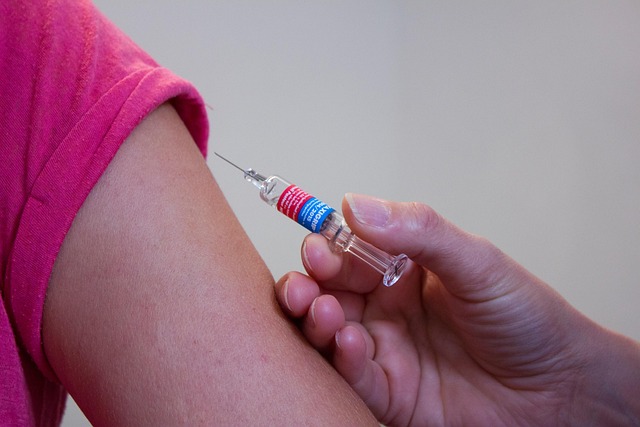Vaccines are one of the most powerful tools in public health, saving millions of lives each year. They help prevent the spread of contagious diseases, protect vulnerable populations, and contribute to the overall health and well-being of society. In this post, we’ll explore why vaccines and immunizations matter for public health, how they protect individuals and communities, and why getting vaccinated is crucial for everyone.
What Are Vaccines and How Do They Work?
Vaccines are substances that prepare the immune system to fight specific infections. They typically contain weakened or inactivated parts of a pathogen (such as bacteria or viruses), or proteins similar to those of the pathogen, that trigger an immune response without causing the disease itself. This process helps the body recognize and fight off the pathogen if it’s encountered in the future.
In simple terms, vaccines teach the immune system how to protect itself from harmful diseases.
Why Vaccines Matter for Public Health
1. Disease Prevention
The primary goal of vaccines is to prevent disease. Immunizations can stop the spread of infectious diseases that once caused widespread illness and death. For instance, smallpox, a disease that killed millions of people, has been eradicated through global vaccination efforts. Similarly, diseases like polio, measles, and diphtheria are significantly reduced or eliminated in many parts of the world due to vaccines.
Vaccines not only protect the individual who receives them but also help prevent outbreaks by reducing the number of people susceptible to the disease.
2. Herd Immunity Protecting the Vulnerable
One of the greatest benefits of vaccination is the concept of herd immunity. When a large percentage of the population is vaccinated against a disease, it becomes much harder for the disease to spread. This protects those who cannot be vaccinated, such as individuals with weakened immune systems, infants, or those with severe allergies to vaccine components.
Herd immunity helps safeguard vulnerable populations who may be at higher risk for severe illness or complications from infectious diseases. By vaccinating a significant portion of the population, we can create an environment where these individuals are less likely to be exposed to dangerous pathogens.
3. Reduction in Healthcare Costs
Preventing disease through vaccines is not only a health benefit—it’s also an economic advantage. Treating the diseases that vaccines prevent can be incredibly costly, both for individuals and healthcare systems. Vaccines help reduce the number of hospitalizations, doctor visits, and long-term care required for individuals suffering from preventable diseases.
For example, the CDC estimates that vaccines prevent over 21 million hospitalizations and $69 billion in healthcare costs each year in the United States alone.
4. Combating Antimicrobial Resistance
Antimicrobial resistance (AMR) is a growing concern in global health, as bacteria become resistant to antibiotics. Vaccines can help reduce the need for antibiotics by preventing bacterial infections in the first place, helping to slow the rise of AMR. By preventing diseases like pneumonia and meningitis, vaccines reduce the unnecessary use of antibiotics, which is crucial for controlling AMR.
Vaccines Save Lives Real-World Impact
Vaccination programs have proven to be highly effective in reducing the burden of disease worldwide. Here are a few examples of vaccines that have made a significant impact on global health
-
Smallpox Vaccine Smallpox was one of the deadliest diseases in history, responsible for millions of deaths. Thanks to the development of a smallpox vaccine, the disease was eradicated worldwide by 1980.
-
Measles Vaccine The introduction of the measles vaccine has reduced cases of the disease by more than 80% globally, saving millions of lives each year.
-
Polio Vaccine Polio, which once paralyzed thousands of children annually, is close to being eradicated. The global polio vaccination campaign has led to a 99% reduction in cases since 1988.
-
Human Papillomavirus (HPV) Vaccine The HPV vaccine prevents infections caused by high-risk strains of HPV, which can lead to cervical cancer. The vaccine is reducing the incidence of HPV-related cancers worldwide.
The Role of Vaccines in Combating Emerging Threats
In addition to traditional vaccines, immunizations play a critical role in combating emerging infectious diseases. The COVID-19 pandemic underscored the importance of rapidly developed vaccines to address newly emerging viruses. Vaccines were developed, tested, and distributed worldwide in record time to prevent the spread of the coronavirus, saving countless lives and helping to bring the pandemic under control.
Emerging diseases like Zika virus, Ebola, and COVID-19 highlight the need for continued investment in vaccine research and development. Vaccines are vital in preventing pandemics and controlling the spread of new and deadly diseases.
Addressing Vaccine Hesitancy
While vaccines have proven to be safe and effective, there are still misconceptions and fears surrounding them, often fueled by misinformation. Vaccine hesitancy reluctance or refusal to vaccinate despite availability poses a significant threat to public health, as it can result in the resurgence of diseases that were once under control.
It’s important to address concerns with evidence-based information and promote open conversations about the benefits of vaccines. Vaccines go through rigorous testing for safety and efficacy before they are approved for use. The World Health Organization (WHO) and the Centers for Disease Control and Prevention (CDC) provide reliable sources of information to help combat vaccine misinformation.
Conclusion The Collective Responsibility of Vaccination
Vaccination is one of the most effective and cost-efficient ways to improve public health. By vaccinating ourselves and our children, we protect not only our own health but also the health of those around us. Immunizations contribute to healthier communities, fewer outbreaks of preventable diseases, and more robust healthcare systems.
As we move forward, it is crucial to continue advocating for vaccines, dispelling myths, and ensuring that everyone has access to life-saving immunizations. Together, we can work towards a healthier, disease-free world.


